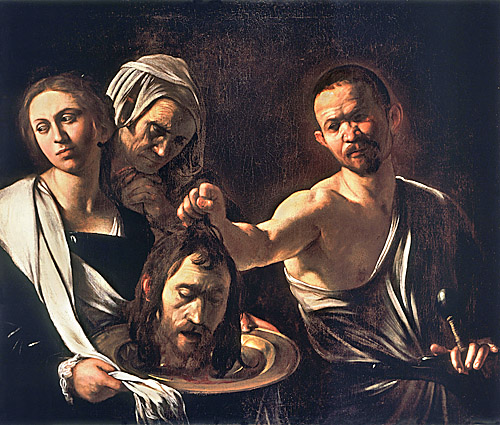Readings:
Wisdom 2:23-3:9
Psalm 5:1-5
2 Corinthians 4:5–11
Matthew 14:1–12Preface of a Saint (2)
PRAYER (traditional language)
Almighty God, who didst call thy servant John to be the forerunner of thy Son our Lord both in life and death; grant, we beseech thee, that as we remember his faithfulness unto death, we may with boldness speak thy truth and with humility be ready to hear it; through Jesus Christ, the firstborn from the dead, who with Thee and the Holy Ghost, livest and reignest one God, world without end. Amen.
PRAYER (contemporary language)
Almighty God, who called your servant John the Baptist to go before your Son our Lord both in life and death; grant that we who remember his witness may with boldness speak your truth and in humility hear it when it is spoken to us, through Jesus Christ, the firstborn from the dead, who with you and the Holy Spirit lives and reigns one God forever and ever. Amen.
Lessons revised a General Convention 2024
Return to Lectionary Home Page
Webmaster: Charles Wohlers
Last updated: 10 July 2024
THE BEHEADING OF SAINT JOHN THE BAPTIST
The Beheading of Saint John the Baptist commemorates the martyrdom by beheading of John the Baptist on the orders of Herod Antipas through the vengeful request of his step-daughter Salome and her mother Herodias.
According to the Synoptic Gospels, Herod, who was tetrarch, or sub-king, of Galilee under the Roman Empire, had imprisoned John the Baptist because he reproved Herod for divorcing his wife (Phasaelis, daughter of King Aretas of Nabataea) and unlawfully taking Herodias, the wife of his brother Herod Philip I. On Herod's birthday, Herodias' daughter (whom Josephus identifies as Salome) danced before the king and his guests. Her dancing pleased Herod so much that in his drunkenness he promised to give her anything she desired, up to half of his kingdom. When Salome asked her mother what she should request, she was told to ask for the head of John the Baptist on a platter. Although Herod was appalled by the request, he reluctantly agreed and had John executed in the prison.
The Jewish historian Flavius Josephus also relates in his Antiquities of the Jews that Herod killed John, stating that he did so, "lest the great influence John had over the people might put it into his [John's] power and inclination to raise a rebellion, (for they seemed ready to do any thing he should advise), [so Herod] thought it best [to put] him to death." He further states that many of the Jews believed that the military disaster that fell upon Herod at the hands of Aretas, his father-in-law (Phasaelis' father), was God's punishment for his unrighteous behavior.
None of the sources gives an exact date, which was probably in the years 28–29 AD (Matthew 14:1-12; Mark 6:14-27; Luke 9:9) after imprisoning John the Baptist in 27 AD at the behest of Herodias his brother's wife whom he took as his mistress. According to Josephus, the death took place at the fortress of Machaerus.
more at Wikipedia

Salome with the Head of John the Baptist, by Caravaggio